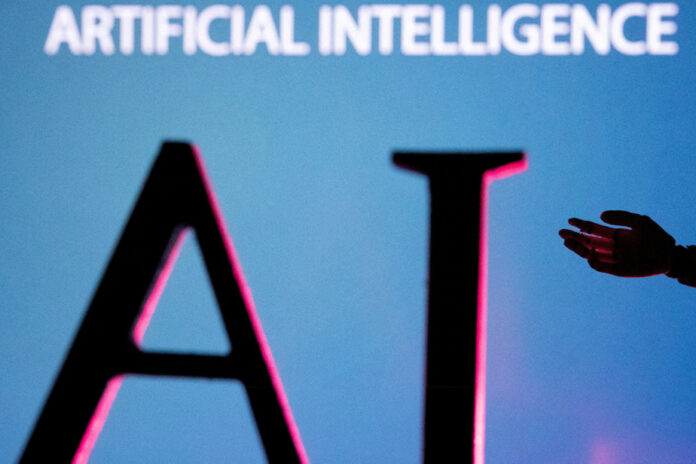(Washington, San Francisco) President Joe Biden on Friday obtained commitments from American technology giants to reduce the risks of fraud and misinformation linked to the rise of artificial intelligence, subjects at the heart of a summit the same day at the White House with the tenors of the sector.
Amazon, Anthropic, Google, Inflection, Meta, Microsoft, and OpenAI have agreed to abide by “three principles that must be fundamental to the development of artificial intelligence (AI, namely safety, security, and trust,” the White House announced Friday morning.
Leaders of these companies will be received there on Friday afternoon, as fears linked to this powerful technology intensify, dangers for consumers (fraud) and citizens (misinformation), at the risk of losing many jobs.
To make this technology safer and more transparent, these seven companies have notably promised to test their computer programs internally and externally before their launch.
They have also pledged to invest in cybersecurity and to share relevant information about their tools, including possible flaws, with authorities and researchers.
“This will allow AI-related creativity to thrive while reducing the dangers of fraud and trickery,” the Biden administration said.
So far, the main companies involved have been rather reluctant to add such marks to content created with their programs.
“It’s a complex subject,” a senior White House official acknowledged at a press conference.
The watermark mark “should work for visual as well as audio content,” he explained. “It has to be technically robust, but also easy for users to see.”
Fake photographs and advanced montages (deepfake) have been around for years, but generative AI, capable of producing text and images on simple request in everyday language, raises fears of a flood of fake content online.
These can be used to manufacture ultra-credible scams or even to manipulate public opinion. A particularly worrying prospect as the 2024 US presidential election approaches.
The support committee of Ron DeSantis, Donald Trump’s great rival in the race for the nomination of the Republican Party, has already used in a commercial a false voice generated by artificial intelligence and resembling that of this former president.
“We must pull all the levers of the federal government to regulate (this sector, editor’s note)” and “work” with Congress to legislate, White House chief of staff Jeff Zients told the Axios news site.
“We will need legislation to have the experts we need in the federal government and to have the regulatory authority to hold the private sector accountable for its actions […],” he said.
Current political tensions in Congress make new AI laws unlikely anytime soon, but the government has said it is working on an executive order.
These industry commitments secured by the Biden administration are “an important first step,” according to Paul Barrett, associate director of the Center for Business and Human Rights at New York University (NYU).
“But since they are not subject to sanction for non-compliance, it is vital that Congress passes laws quickly,” he added.
The White House also said it was working with foreign allies to seek “a strong international framework to govern the development and use of AI” around the world.
The topic was front and center at the G7 in Japan in May, and Britain is set to host an international AI summit, likely next fall.















